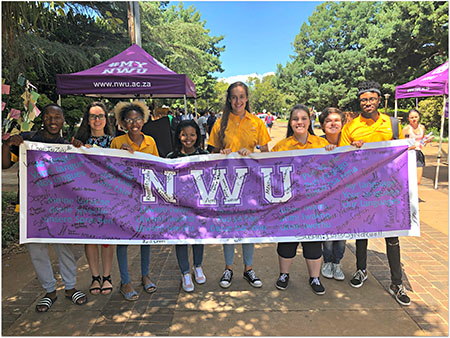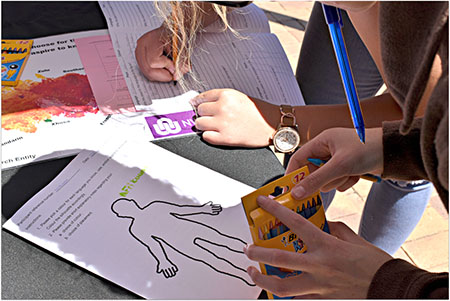In accord with the North-West University’s (NWU) commitment to pursue, accommodate and provide a fair and an inclusive language environment, the university recently celebrated annual International Mother Tongue Day across its three campuses.
The NWU, through its Language Policy, recognises the diversity of languages represented in its student and staff body. The university is determined to ensure that such linguistic diversity is reflected in its institutional practices, especially in teaching and learning, and this resonates well with the origins of the International Mother Tongue Day.
In 1999, the United Nations Educational, Scientific and Cultural Organisation (UNESCO) recognised International Mother Tongue Day in honour of students from the University of Dhaka in Bengali, Bangladesh. These students were killed on 21 February 1952 because they campaigned to officially use their mother language in learning. The day has been observed throughout the world since 2000.
UNESCO declared 2019 as the International Year of the Indigenous Languages (2019 IYIL) with the theme “Indigenous languages matter for development, peace building and reconciliation”. This saw a celebration of linguistic diversity across the globe.
The NWU’s Faculty of Humanities, through the School of Languages, celebrated the day by affording staff and students across the three campuses the opportunity to showcase their diverse linguistic heritage. The day saw several interactive activities taking place:
- Students offering 60-second learning of key conversational phrases in their mother language to other students and staff members.
- CTexT® presented 60-second Autshumato courses.
- SADiLAR language experts availed themselves to share academic information on South African languages.
- A mother language banner, to display the linguistic diversity of the NWU visually, was signed.
- Creative sessions that saw members of the university community decorating a mother language tree and the imaginative portrayal of what language means on an emotional and physical level through portraits.
The various artefacts created during these sessions will henceforth be displayed at the respective campuses.
According to Gerda Wittmann, chairperson of the subject group German, the celebrations were a great success. She says it represents the first of many activities planned by the faculty and the School of Languages to promote indigenous South African languages, and mother tongues in general.
The Faculty of Humanities continues to celebrate the 2019 IYIL through SADiLAR. SADiLAR is hosting monthly events, with each month celebrating one of the South African official languages. These celebrations will be hosted in collaboration with South African National Lexicographic Units.
According to Prof Pamela Maseko, executive dean of the faculty, the recognition of indigenous languages outside and within the NWU serves not only to encourage linguistic diversity and multilingual education (which the university seek to achieve through its language plan). She says the recognition of indigenous languages also serves to raise and develop awareness of linguistic and cultural traditions within the institution and region, and throughout the world, and to inspire social cohesion.
NWU: building a functional multilingual language environment
Against the backdrop of the dream to be an internationally recognised university in Africa, distinguished for engaged scholarship, social responsiveness and an ethic of care, the NWU Council approved a functional multilingual language policy on 22 November 2018.
Through this policy the NWU is committed to continually strive to pursue and provide a fair and inclusive language environment in all its communication practices.

On the campus in Mahikeng, the School of Languages celebrated International Mother Language Day by offering 60-second crash courses in various mother languages.

Students on the campus in Potchefstroom signed a mother language banner in celebration of International Mother Language Day.

On the campus in Vanderbijlpark, participants used portraits to creatively depict how language impacts them.
